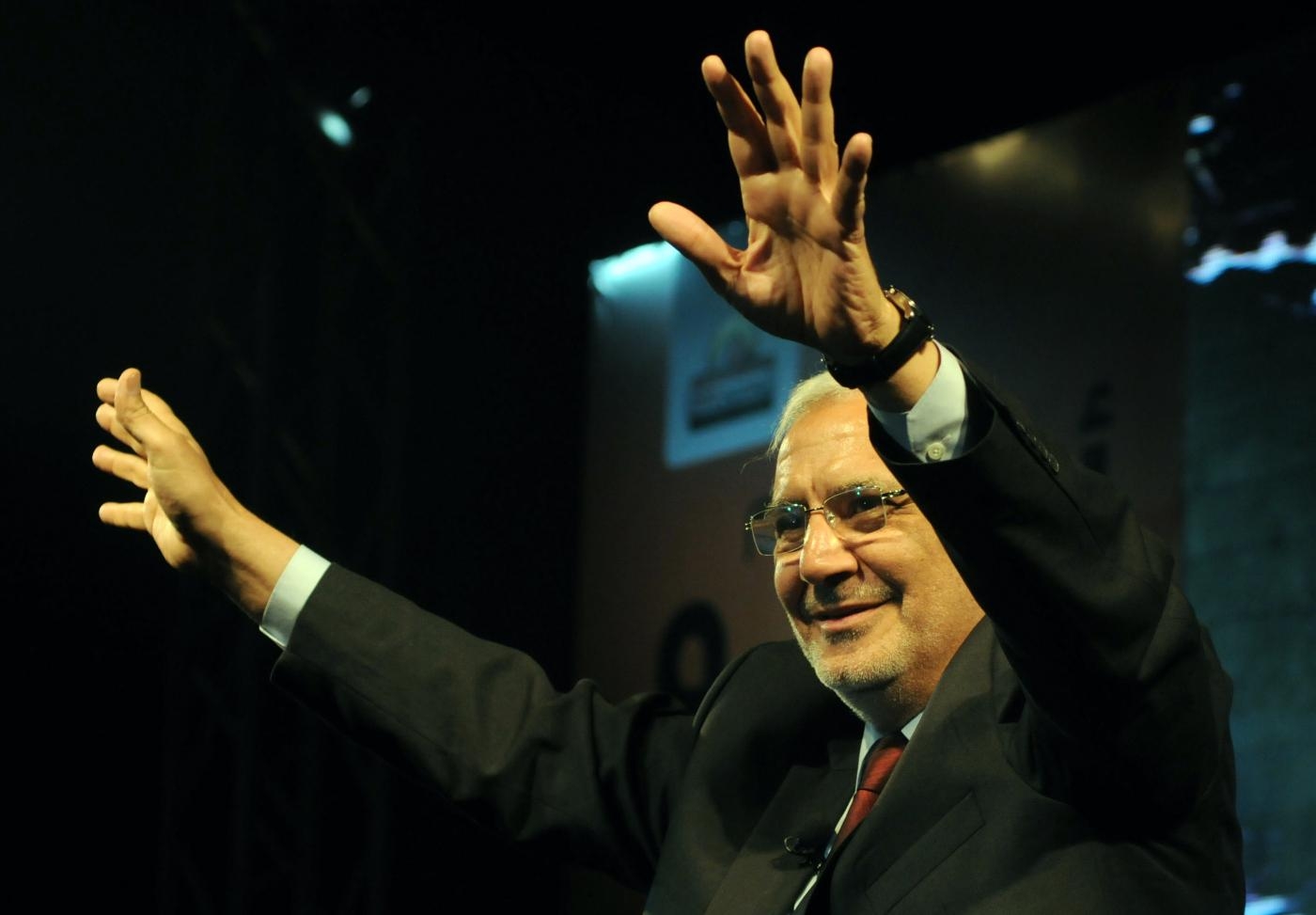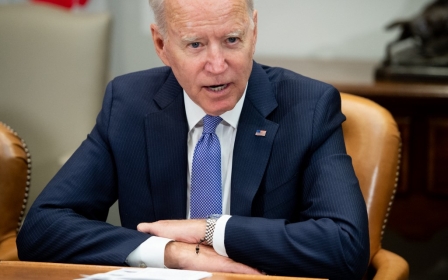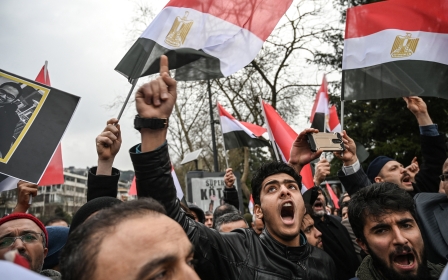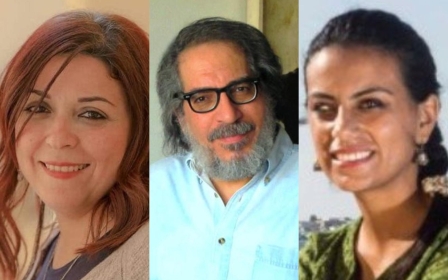Egypt: Former presidential candidate survives heart attack in prison

Former Egyptian presidential candidate and physician Abdel Moneim Aboul-Fotouh survived a “severe heart attack” in his Cairo prison over the weekend, his son announced.
According to Huzaifa Aboul Fotouh, the son of the president of the opposition party Strong Egypt, his father had symptoms of a heart attack on Saturday evening but that prison guards did not respond to his calls for help.
Aboul-Fotouh, 69, has been held in solitary confinement in a tiny cell at the notorious Tora prison since his arrest in February 2018. He was arrested that year on charges of spreading false news to harm national interests.
He has since faced several other charges but has not been brought to trial.
The politician's family has repeatedly accused authorities of subjecting him to a "slow death" due to medical negligence and the tough conditions of his solitary confinement.
New MEE newsletter: Jerusalem Dispatch
Sign up to get the latest insights and analysis on Israel-Palestine, alongside Turkey Unpacked and other MEE newsletters
“My father informed us today during the visit that he suffered a severe heart attack last night and that he tried to seek help for hours throughout the night without any response to him at all,” his son wrote on Facebook.
He added that the guard who was outside the cell “witnessed his suffering and tried to seek help for hours, to no avail".
“For two weeks, he has been barred from buying anything from the prison’s kiosk, despite the extreme heat, and he was not allowed to get an analgesic injection for spinal pain during the period of the Eid al-Adha holiday, which he needs on an ongoing basis as a result of a herniated disc that he has been suffering from for three years.
“After more than three years and five months in pretrial detention, in solitary confinement, in complete isolation, and a continuous deterioration in his health that threatens his life at every moment, when will he return home?”
In mid-June, the State Security Prosecution issued a decision to release Aboul Fotouh, dropping some of the charges he faced since February 2018, but his detention was renewed after the prosecution filed new charges against him pending another case.
In February 2020, he was added to a new case after the expiry of his initial provisional detention.
While the maximum period of pre-trial detention is two years, according to Egyptian law, it is common in Egypt to bring renewed charges against political detainees after the expiry of the two-year period, in what rights groups have described as “recycling of existing cases” to enable indefinite detention.
Deaths due to medical negligence
Aboul-Fotouh, a former member of the Muslim Brotherhood, is one of at least 60,000 political prisoners estimated to have been jailed since Egyptian President Abdel Fattah el-Sisi took power in a coup in 2013.
Sisi overthrew Mohamed Morsi, the country's first democratically elected president, who was affiliated to the Muslim Brotherhood.
Several Brotherhood leaders have died in custody in recent years, including Morsi and former MP Essam el-Erian.
Rights groups have said their deaths were most likely due to medical negligence and poor conditions in jails.
According to the Geneva-based Committee for Justice, since Sisi’s coup in 2013, at least 731 people have died in custody due to denial of healthcare.
Middle East Eye delivers independent and unrivalled coverage and analysis of the Middle East, North Africa and beyond. To learn more about republishing this content and the associated fees, please fill out this form. More about MEE can be found here.




